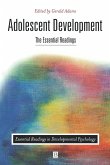Thomas Szasz died at 92 on September 8, 2012. With his death, many of us, not enough, are left with deep concern about his legacy and the continuing influence of his ideas. Here, following a biographical sketch, I discuss some of the myriad ways his ideas have directly or indirectly influenced my ongoing work as a psychologist. I hope that my experience will have a small positive effect in keeping alive and in play the profoundly important ideas of this great man. Szasz became a psychiatrist with the thought of launching an attack on psychiatry that would end or at least significantly reduce the use of civil commitment and the insanity defense. He stayed true to this goal throughout his life. At the same time, he would not advise another to follow in his footsteps. Nevertheless, he has educated and inspired me, hence the focus of this book is on how his work influences my own. I have been involved in the so-called mental health field for about 40 years. My first job after graduating from college with a bachelor's degree in psychology in 1975 was in a residential treatment center for children. During my three years there I learned about the systematic drugging of children, which even then was not uncommon. Like Szasz in his choice of a residency in psychiatry, I went on to study psychology in graduate school because I wanted to work with people. I knew that there were problems with the profession I was entering, that people in the field were engaged in unethical, harmful practices, but was not nearly as clear as Szasz in my understanding of the profession; nor did I have, like him, an agenda to completely expose and preferably destroy coercive psychiatry.
Hinweis: Dieser Artikel kann nur an eine deutsche Lieferadresse ausgeliefert werden.
Hinweis: Dieser Artikel kann nur an eine deutsche Lieferadresse ausgeliefert werden.








